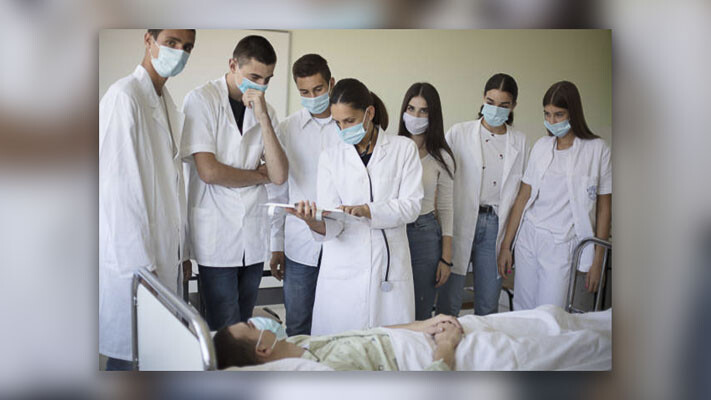
Elizabeth Hovde of the Washington Policy Center states that multistate license holders not only increase access to care across state lines when necessary, they also maintain and augment patient safety
Elizabeth Hovde
Washington Policy Center
A House committee was scheduled to have a public hearing today (March 22), as it again considers allowing Washington state to join the multistate Nurse Licensure Compact. Doing so could benefit patient access to needed care, helping supply caregivers promptly in pandemic times and given our state’s nursing shortage. Additionally, joining the compact is a worker rights issue. Nurses should be able to take their skills from state to state with fewer unnecessary barriers.

Senate Bill 5499 passed in the Senate, while a compact-joining bill in the House did not. Hopefully, that does not spell doom for this second consideration of the good policy idea.
Opposition to the idea has been about safety and registration. Keeping track of nurses in our state can be handled and should not hold up our state from acquiring this needed workforce solution. And safety concerns are outdated.
Safety is prioritized in the compact. Nurses must comply with the practice laws of each state, compact states have the authority to take disciplinary action against violators, and a study comparing discipline rates of multistate-license holders to single-state license holders shows compact participation doesn’t pose an elevated risk to patient safety. From the study: “The overall discipline rates of nurses in NLC and non-NLC states were virtually identical (0.24% versus 0.23%). However, a further breakdown of the data revealed the annual discipline rate of nurses holding single-state licenses across both non-NLC and NLC states was between two to four times higher than the rate of multistate license holders.” Read the full study here.
Multistate license holders not only increase access to care across state lines when necessary, they also maintain and augment patient safety.
I wrote a white paper in the fall about the compact and the outdated arguments against it. Read it for more information, and hope the House makes progress on joining the Nurse Licensure Compact.
Elizabeth Hovde is a policy analyst and the director of the Centers for Health Care and Worker Rights at the Washington Policy Center. She is a Clark County resident.
Also read:
- POLL: Are you inclined to vote to approve the three remaining Washington initiatives?Are you inclined to vote to approve the three remaining Washington initiatives?
- Opinion: Where did the data come from for Ridgefield School District?Ridgefield resident Heidi Pozzo provides sources for the information she has shared in her series of columns on the Ridgefield School District bond proposal before voters in the April 23 special election.
- Opinion: When journalism fails – Ridgefield School District endorsementRidgefield resident Heidi Pozzo adds ‘the rest of the story’ not covered by a newspaper’s recent endorsement of Ridgefield School District bond.
- Opinion: As state’s CO2 tax faces voters, Inslee Administration using taxpayer funds to campaign for policyAs Washington’s CO2 tax, known as the Climate Commitment Act, heads to the ballot this fall, this logo highlighting projects that received funding from that tax will become more prevalent. And state residents are paying for it.
- Opinion: Student loan forgiveness? Bring it onClark County resident and long-time journalist Marvin Case shares his thoughts on the president’s attempt to seek a legal way to reduce or dismiss student college loan debts.










